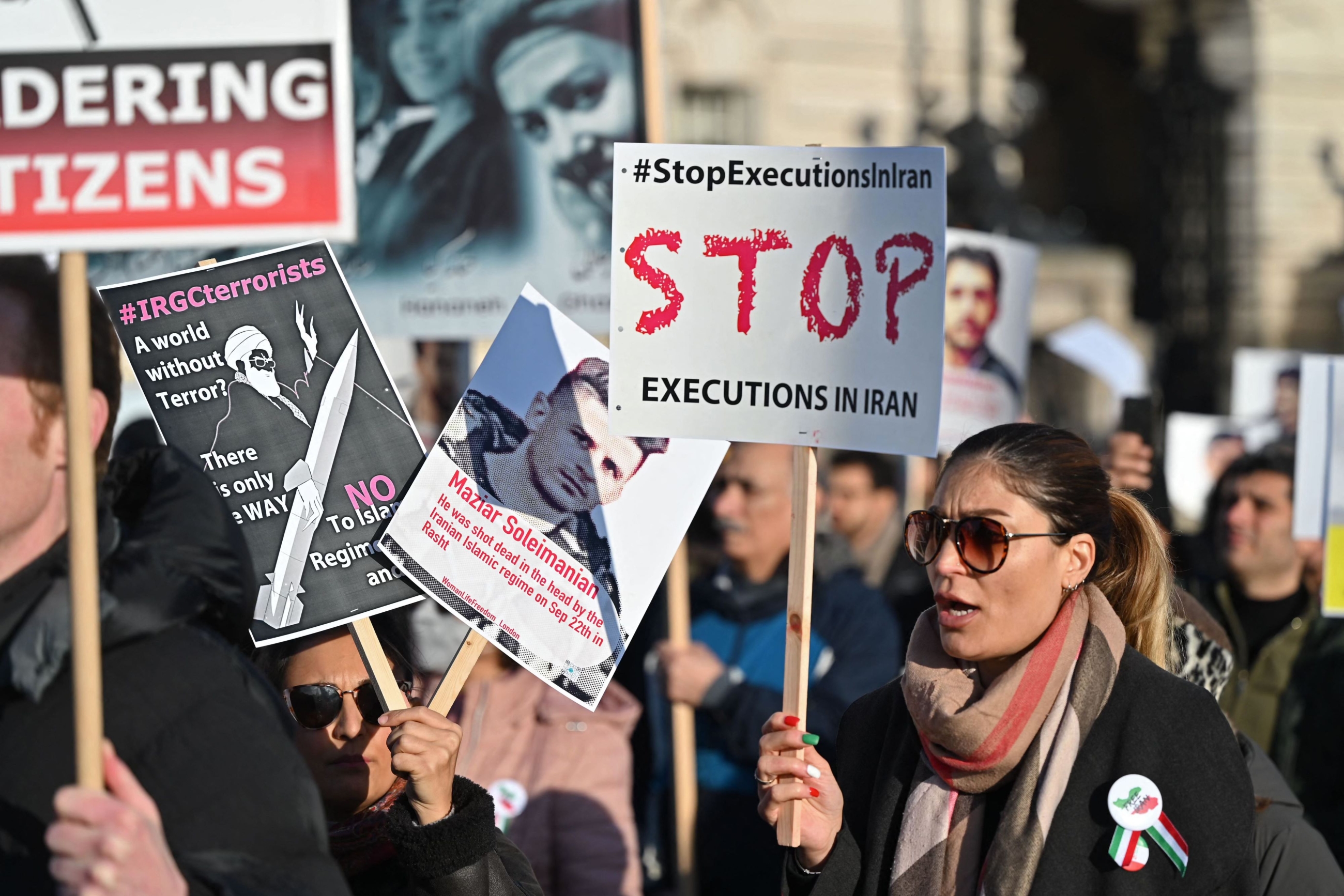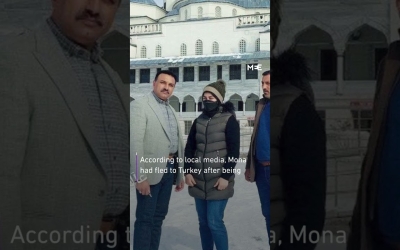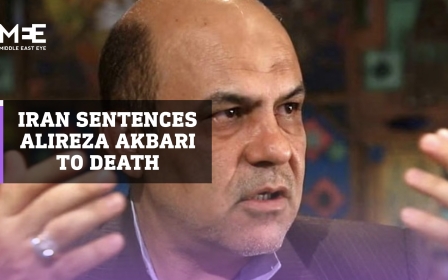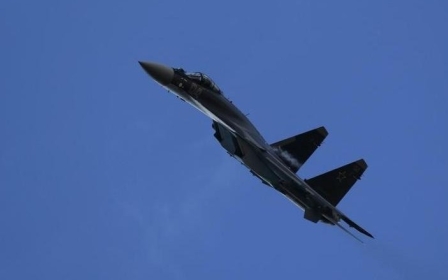Iranian women prisoners sign petition calling for end of protester executions

A group of female political prisoners in Iran have signed a petition calling for an end to the execution of protesters in the country.
Thirty women political prisoners, including Franco-Iranian researcher Fariba Adelkhah and Faezeh Hashemi, the daughter of former president Akbar Hashemi Rafsanjani, wrote that they had "come together to say 'no' to execution. We defend people's right to live in justice."
"We, the political and ideological prisoners in the women's ward of Evin Prison, demand an end to the execution of protesters and an end to unjust sentences of prisoners in Iran," said the petition.
The signatories said they had been "sentenced to a total of 124 years in prison through unfair and non-transparent procedures, which is worth a few generations of human life".
Hashemi was sentenced in January to five years behind bars for "collusion against the security of the country", while Adelkhah was arrested in June 2019 and later sentenced to five years in prison for undermining national security.
New MEE newsletter: Jerusalem Dispatch
Sign up to get the latest insights and analysis on Israel-Palestine, alongside Turkey Unpacked and other MEE newsletters
Niloufar Bayani, a former representative of the UN Environment Programme in Iran who was handed 10 years in jail in 2020 for "conspiring with America as a hostile government", also signed the petition.
Iran erupted into protests in September, following the death in custody of 22-year-old Mahsa Amini after she was arrested for allegedly violating the Islamic republic's strict dress rules.
According to Norway-based group Iran Human Rights, at least 481 people have been killed in the crackdown and at least 109 people are facing execution in protest-related cases, in addition to four already put to death.
Iran's troubled currency fell to a record low against the US dollar on Saturday amid the country's increasing isolation and possible European Union sanctions against the Islamic Revolutionary Guard Corps (IRGC) or some of its members.
Ties between the EU and Tehran have deteriorated in recent months as efforts to revive nuclear talks have stalled. Iran has detained several European nationals, and the bloc has become increasingly critical of the violent treatment of protesters and the use of executions.
The EU is discussing a fourth round of sanctions against Iran, and diplomatic sources have said members of the IRGC will be added to the bloc's sanctions list next week.
Some EU member states want to go further and classify the IRGC as a whole as a terrorist organisation.
Middle East Eye delivers independent and unrivalled coverage and analysis of the Middle East, North Africa and beyond. To learn more about republishing this content and the associated fees, please fill out this form. More about MEE can be found here.





